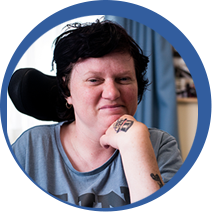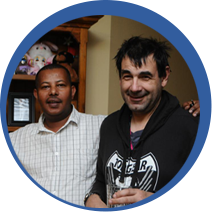Gellibrand responds to the Royal Commission’s findings on the future of group housing for people living with a disability.
The Royal Commission into Violence, Abuse, Neglect and Exploitation of People with Disability has just released its Final Report. We welcome this and the effort that has gone into ensuring the voices of lived experience are heard in considering how to avoid these negative impacts on people living with a disability.
The Final Report notes that group accommodation has historically been a factor in many of these negative outcomes. Consequently, it recommends that group housing requires significant reform to safeguard people with disability, with the majority of the seven commissioners recommending they are phased out within 15 years.
Gellibrand has provided group housing for people living with a disability for more than 50 years. We have seen – and been involved in – recent changes in the accommodation landscape; people are choosing to live alone, with fewer people, or with family. Throughout these changes – as always – Gellibrand has made supporting our clients and their families our number-one consideration.
We are aware the Royal Commission’s findings could cause our clients and their families immediate concern. The news that people may have to move from homes they have lived in for many years is difficult to hear, along with considering what a transition to alternative accommodation might look like. Gellibrand will work with our clients and families to bring their voices to any discussions around the future of group housing for people living with a disability.
Gellibrand doesn’t believe in a ‘one size fits all’ approach to accommodation. What we believe in is that people living with a disability should have a full range of choice for where they live and who they live with – and that should include group accommodation. Any future policy that would end group housing takes away necessary and appropriate choice for people living with a disability and their families.
We acknowledge and are saddened by the fact that people living in group accommodation have suffered abuses. But through our decades of experience, we know that properly administered, well-managed group homes provide the best-quality residential option for many people living with a disability. And, for some people, group homes are the only one in which they report having felt comfortable and secure. We must ensure group accommodation remains a viable option for these people.
Why group homes work for so many
A supportive, socially and community-connected home environment for people who have frequently experienced social isolation is of inestimable value, and contributes critically to the quality of life of people living with disability. When careful supervision, boundaries, support, and respect are enabled and maintained, we have seen mutually supportive relationships flourish between people who live in group homes, developing into deep, long-term friendships. Together with the support they receive to engage with the wider community in activities outside group homes, the positive effect on their quality of life is immense.
We have seen group homes function to support and enable people to develop greater autonomy and independence from their families. This can be liberating, not only for the individual, but also for family members who, in many cases, have felt the weight of care as they age.
Group home processes unavailable in other supported accommodation models can enhance an individual’s autonomy, supporting their choices and preferences. Examples include regularly scheduled house meetings and activities. These help develop skills and confidence, assisting people to self-advocate and function more independently.
Group accommodation provides an increased layer of protection for people who might be at risk of exploitation from unscrupulous community members. And, if people living with a disability experience challenges when in the community, group homes offer a place of retreat where they can receive immediate assistance and support from dedicated staff and service providers.
Properly-managed and well-equipped group homes can also be invaluable stepping stones to re-ablement for people who live with intellectual disabilities, acquired brain injuries, or newly acquired physical disabilities. Group homes offer a highly-supported environment where they can develop skills for independence, find new and more adaptive ways of coping and thriving, or re-learn lost skills.
Gellibrand has always been – and will continue to be – an advocate for people living with a disability, particularly those living with intellectual disabilities and acquired brain injuries. As the accommodation landscape evolves – and in keeping with the Royal Commission’s vision for an inclusive Australia – we will actively work to ensure people living with a disability are strongly and fully represented and consulted so their choices are encouraged and respected.






